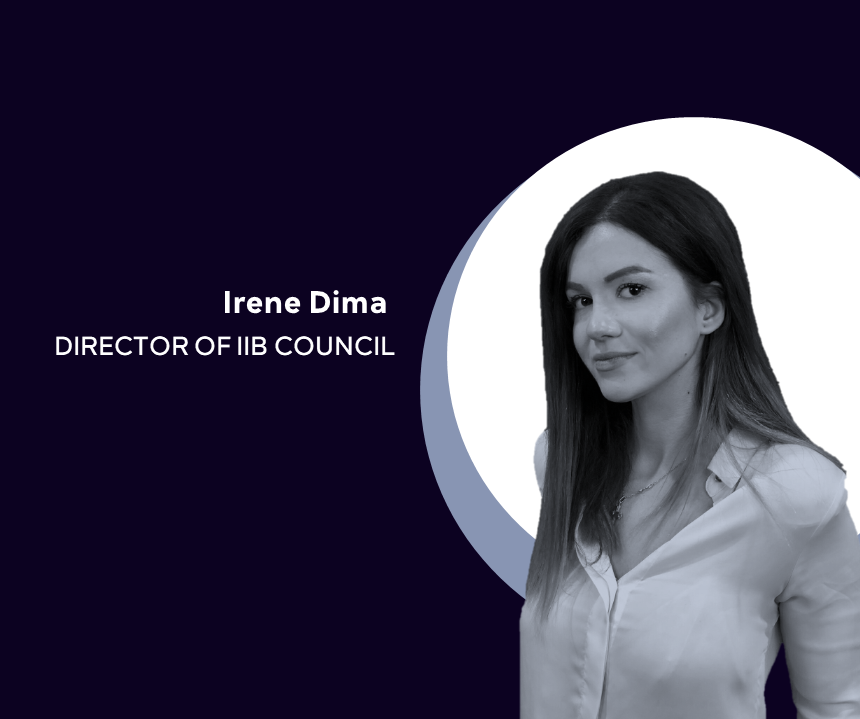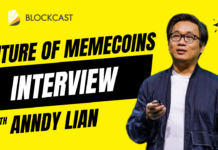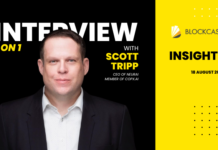Blockcast: Hi today we have Vivienne Ji on our interview. First of all, can you do a brief introduction of yourself? Your experiences, and how you got into the blockchain industry.
Irene: IIB Council (Institute of iBusiness Council) is a division of International Council of E-Commerce Consultants, also known as EC-Council, one of the world’s largest cybersecurity technical certification body. ECC operates in 145 countries globally and is the owner and developer of the world-famous Certified Ethical Hacker (CEH), Computer Hacking Forensics Investigator (C|HFI), Certified Security Analyst (ECSA), License Penetration Testing (Practical) programs, among others. We are proud to have trained and certified over 220,000 information security professionals globally that have influenced the cybersecurity mindset of countless organizations worldwide. The IIB division is dedicated to developing the world’s first Business Technology and Enterprise Digital Transformation Professional Training and Certification Programs. The programs aim at revolutionizing traditional approach in business operations. IIB’s Smart Education includes Certification Programs in Digital Marketing Management, Smart Project Management, Blockchain and Financial Technology Management (FinTech). My role with IIB is to lead EC-Council;s initiative to develop the world’s first Business Technology and Enterprise Digital Transformation Professional Training and Certification Programs. The programs aim at revolutionizing traditional approach in business operations. IIB’s Smart Education includes Certification Programs in Digital Marketing Management, Digital Project Management, Blockchain and Financial Technology Management (FinTech). The IIB Training programs are developed with a unique practical approach to a standard MBA program. The hands-on training is aimed at nurturing a Corporate Growth Hacking mindset; a skillset that describes one’s ability to leverage analytical, creative and digital skills to conduct rapid experimentations within various business operations and identify the most efficient ways to accelerate performance and attain business growth. Corporate Growth Hacking is an immediate implementable skillset that refers to a set of both conventional and unconventional testing techniques used to define growth strategy. This approach allows business professionals to make the most use of smart technology, digital tools and online applications based on advanced technologies such as Big Data Analytics & Visualization, Predictive Analytics, Augmented Reality (AR), Virtual Reality (VR), Artificial Intelligence (AI), Machine Learning (ML) and Blockchain to test and analyze common business methodologies and help optimize and transform them into higher performing processes and automated operations. Such skills are highly sought-after in the digital era we live in, where traditional organizations strive to live up to the expectations of Data-Driven Economies, Decentralized Financial Ecosystems and Consumer-Centric Markets.
Irene: Introducing the 1st Blockchain Professional Training and Certification Program to set the global standards in Blockchain Technology Professional Skillset, Contextual Training and Global Application.
As organizations transform into smart, adaptive, digital enterprises and economies evolve to consumer-centric and data-driven peer-to-peer ecosystems, our mission is and has always been to help business professionals obtain relevant, implementable and practical digital skills to facilitate corporate growth globally.
“There are now 14 job openings for every one blockchain professional”
(TechCrunch)
To support the growing demand for skilled Blockchain professionals, we introduced the Certified Blockchain Professional (C|BP) Training and Certification Program for Developers and Business Technology Professionals. The course aims to bring practitioners up to speed with the industry requirements while forming the global standards in the developing discipline.
$20 billion the expected worth of the global blockchain market in 2024
(Expandedramblings)
The course aims to bring practitioners up to speed with the industry requirements while forming the global standards in the Blockchain Industry, one of the fastest growing disciplines. The C|BP course provides a thorough overview of blockchain technology and its implementation in the real world. The course begins with the technical foundations of blockchain, such as distributed and decentralized systems, cryptography and mining. Students will learn about the mechanisms behind cryptocurrencies and how to develop applications using Ethereum, a decentralized virtual machine. Students will explore different blockchain solutions and business blockchain frameworks for blockchain enterprise applications such as Hyperledger, introduced by the Linux Foundation and widely used by IBM. Most importantly the course will cover multiple blockchain implementation concepts by immersing students to sustainable and scalable blockchain development. C|BP program is a 360°, vendor agnostic and practical course that covers a wide variety of different blockchain technologies, networks and development ecosystems. The course focuses also on Blockchain’s current and future potential through various industry use cases. The CBP course consists of three knowledge and competency areas in Blockchain Technology: Development, Implementation and Strategy. The course can be attended by developers, coders, and programmers for a full 5 days training that will grant them access to CBP exams and the chance to obtain the global certification while policymakers and business executives can attend two-days training on Blockchain Strategy and Commercialization. CBP course digs deep into the main characteristics and features of the distributed ledger technology (DLT) by allowing the students to practice blockchain development and implementation in real-world environments. During the CBP course, students will be immersed also to a Sustainable, Scalable and Secure Blockchain Development Framework using Quantum Computing that aims to address industry mass adoption issues. The CBP course introduces as well Blockchain’s new 3S (Secure-Scalable-Sustainable) proprietary framework.
Irene: I will save the topic of how cryptomarkets disrupt the world for another speaker, savvier in this field and I will jump directly to why Blockchain technology is worth exploring not only as a technology but as a skillset, profession and career path. Only a few months ago Computer weekly rated Blockchain Development as the hottest “without doubt” skill in the freelance job market, growing more than 6,000% since last year; putting it on pace to be the new “cloud” of the 21st Century. Needless to say this is because Blockchain (a decentralized way to record information digitally) has shown huge potential for businesses. Enterprises are considering the ways blockchain distributed ledgers can create more efficiency by eliminating the need for central administration, as is required with a relational database. By reducing labor, waste, time, emissions and cost in general, blockchain promises organization unmatched benefits in data registry and trusted transactions. It is of no surprise that these benefits are causing the spike in demand for experts familiar with the technology. In fact statistics from Upwork show that job postings for professionals with blockchain skills have grown exponentially this year making Blockchain number one most in demand skill for 2018. Blockchain topped the list as the fastest-growing skill out of more than 5,000 in total skills listed on Upwork.com for the second consecutive quarter. Its year-over-year growth has exceeded 2,000 percent for the past four quarters, and it experienced more than 3,500 percent year-over-year growth in Q2. As we’ve already seen, developers with blockchain skills have become the hottest commodity in the freelance marketplace. However, a quick look at the current landscape of developers and engineers shows us that as of 2018, there are over 5million professionals in this field, while the total number of Blockchain (self-proclaimed) developers do not exceed the sum of 80 thousand. There are less than 2 Blockchain developers for every 100 Software Developers. Clearly It’s not hard to imagine blockchain as a “disruptive skill” that is both fast-growing and hard to find. One of the biggest attractions drawing in blockchain talent is the potential for growth within the industry. Both blockchain jobs and the technology itself are still relatively young and this could help the right candidates climb the career ladder very quickly. With a lack of senior experts in top positions, blockchain developers could find themselves rising through the ranks very quickly. Those of you looking to work hard and make a name for yourselves as experts and influencers within the field you will find shortly that the opportunity has arrived.
Blockchain Technology is essentially a database that by design is immune to tampering (not in theory but at least in practice). The technology itself, therefore, offers to provide a number of essential features that individuals and organizations need, in order to proceed with the execution of any transaction. Especially when they need to ensure it is done in a much safer and secure way. Taking for instance an example from real estate today, a buyer needs to be assured that the property owner is in fact the rightful owner and has the sole authority to sell the property. The buyer needs also to be assured that the property has been developed and maintained as per the local standards to justify the price and/or prevent any legal liabilities and potential penalties in the future. To do so, the buyer would probably have to check all this information with the local registry, consult their agent and their lawyer before signing any agreement. On the other hand, the seller needs to be assured that the buyer would come through and fulfil their financial obligations in the agreed timeframe. All these are uncertainties we overcome by trusting 3rd parties. We trust these parties to verify and assure on our behalf the process is legit to proceed. We trust a designated employee to access the data in the local property registry, we trust an agent to confirm the accuracy of the property details, we trust a lawyer to ensure terms and conditions of the agreement will be met. We hence trust a network of centralized ecosystems to enable our simple or even complex transactions in exchange of a portion of our receiving value or additional fees. So to grasp better the key propositioning of blockchain we have to understand that the core offering of this technology simply relies on its ability to digitally establish and automate accuracy and trust in peer-to-peer transactions. Why per-to-peer? Well, so to reduce the need of middlemen, a service that adds unnecessary time, cost and friction in every transaction.





